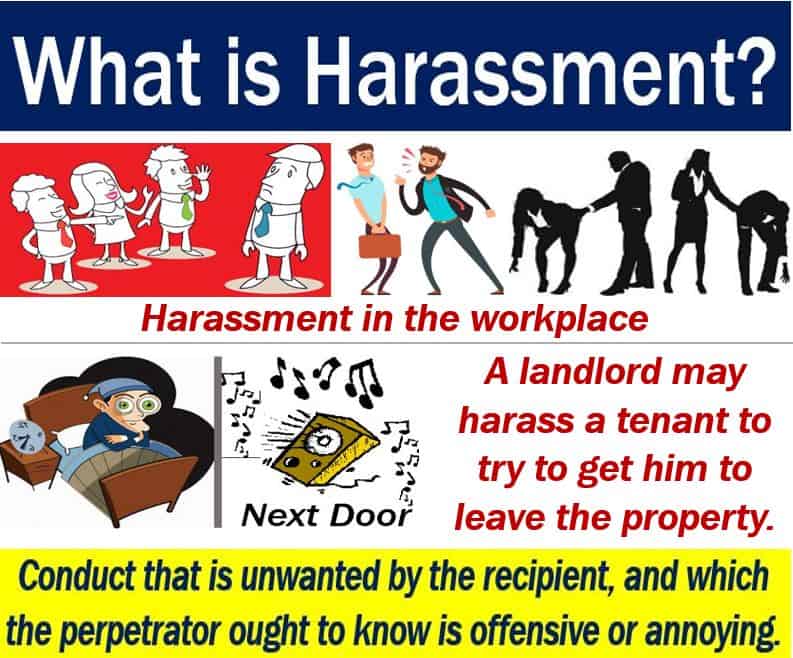Harassment at work is unwelcome behavior or conduct from a colleague, boss, vendor, customer, or group of workers. Specifically, the behavior scares, demeans, humiliates, puts down, ridicules, or disparages the recipient. For example, bullying and touching somebody inappropriately are forms of harassment. In fact, the term also refers to physical assaults and violent threats.
Not only does it include behavior that the recipient does not want, but also the perpetrator knows this. At least, he or she ought to know that the behavior is undesirable, offensive, or forbidden.
What is sexual harassment?
Sexual harassment is sexual behavior which violates the dignity of the recipient. It also includes behavior that makes the recipient feel humiliated, degraded, scared, or intimidated.
This type of behavior creates an offensive or hostile environment.

In most countries, sexual harassment is a form of unlawful discrimination.
Examples of this type of behavior include:
- Sexual jokes.
- Sexual comments.
- Unwelcome sexual advances, touching, as well as various forms of sexual assault.
- Displaying drawings or photographs of a sexual nature.
- Sending emails and messages via social media that contain sexual content.
An employee who is the recipient of sexual harassment should:
- Tell their supervisor or manager. They should put it in writing and keep a copy of the email or letter.
- Talk to their trade union or human resources team.
- Gather as much evidence as possible. For example, by keeping a diary and recording each incident. If they eventually try to get compensation for their suffering, written notes are useful as evidence.
- People who think they are the victims of a crime should contact the police. For example, if somebody physically attacks you, you should inform the police.
People who view sexual harassment as harmless banter tend to be male chauvinists. A male chauvinist believes men are superior to women.
Landlord harassment
Landlords can harass their tenants by making conditions so difficult that they are more likely to abandon the rental contract.
It is a strategy landlords use to get tenants off their property. If successful, it is much cheaper than costly eviction procedures.
The incidence of landlords harassing tenants is more common in jurisdictions with strict rent control laws. However, in some jurisdictions, the behavior is punished severely. Even so, enforcement can sometimes be difficult, and even impossible.
